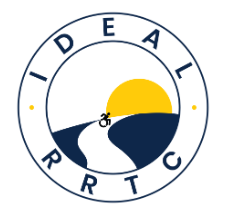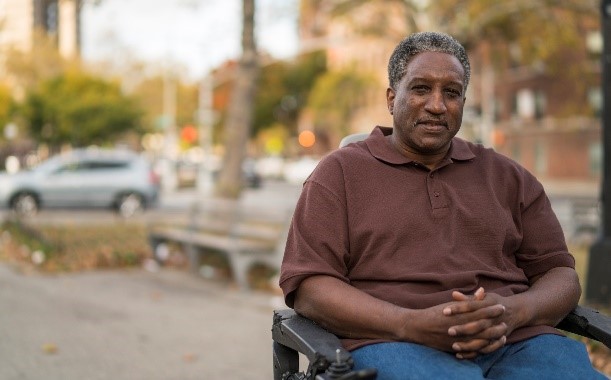Community Inquiry (Research Project 2)

This project is a three-part study designed to enhance understanding of the complex interactions between the person and environment that are associated with healthy aging for individuals with long-term physical disabilities from low income and minority community and to identify best practices related to impactful policies, programs, and resources. The three parts of this study are:
Part A: Qualitative Community Inquiry
Project Director: Michelle A. Meade, PhD
Postdoctoral Fellow: Lisa Reber, PhD

This qualitative study will conduct remote interviewswith adults with long-term physical disabilities and key informant interviews to identify the environmental factors, including the policies, community programs, and personal supports, that are identified as supporting or promoting healthy aging in two low-income and racially/ethnically marginalized communities in Michigan.
Interviews will be held remotely using Zoom Video Communication. Participants can either call in on their phone or connect using their computer.
Potential participants will be identified through community and disability organizations and either contacted through mailings or asked to self-identify in response to advertisements in local papers or other outlets. A stratified sample of 60 individuals will be recruited to participate in focus groups and an addition 12 people nominated to participate in key informant interviews to be held at private, community locations. Stratification will occur based on residence (Detroit vs. Flint area), onset of disability (congenital or pediatric vs. adult onset), and gender. All focus group and interviews will be recorded, transcribed and analyzed to identify key themes. Findings from this study will be used to inform the development of a community and national survey as well as knowledge translation activities.
Part B: Surveys of Community Members
Project Director: Rie Suzuki, PhD

This study will use cross-sectional surveys to identify environmental factors that support healthy aging among individuals with long-term physical disabilities from low income and minority communities. The specific research questions in this project are:
- What kinds of the systems, policies and community programs do adults with physical disabilities use and how helpful do they perceive them to be?
- Does use of these social recourses improve health outcomes?
- Do individuals from different backgrounds seem to differentially benefit from the social resources available to them?
Part C: Survey of Disability Organizations
Project Director: Melissa Riba, MA
Download the survey instrument (PDF file)

This component of the project will use a national survey of disability organizations to identify best practices for promoting healthy aging with physical disabilities and personal and the environmental factors that mediate the effectiveness of community living outcomes among diverse communities. This survey will incorporate insights gained from focus groups and key informant interviews in its design and questions. The results of this survey will be integrated with IDEAL RRTC research findings to inform and guide the design and implementation of our proposed research interventions. The survey will also provide information that will inform health providers, community organizations, community health workers, policymakers, and members of the disability community to further advance community, state and federal policies to reduce disparities and improve health aging for adults with physical disabilities. Dissemination may include issue briefs, webinars, research papers and conference presentations.

